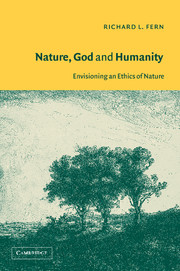5 - Theistic naturalism
Published online by Cambridge University Press: 22 September 2009
Summary
THE RADICAL OTHERNESS OF GOD
Traditional theism has been subjected to extensive criticism in the modern era, much focused on the notion of a miracle-working deity, regarded by modernists as antithetical to scientific inquiry and, more fundamentally, a proper understanding of God's relation to and modus operandi in the world-at-large. These concerns have led revisionist theologians to remove God from the causal nexus, thereby protecting, as they see it, the transcendent Otherness of God from anthropomorphic debasement. This critique is rejected by traditional theists, who argue, as seen in chapter four, that it fails on all counts and, more positively, that the transcendent Otherness of God demands an attribution of miracle-working power. Throughout this debate, until recently, both traditionalists and modernists have remained committed to the notion of transcendent Otherness, even though differing on what it involves.
Lately, however, some revisionists have begun to worry that the notion of radical Otherness introduces an alienating, morally dangerous dualism into our understanding of the relation between God and world. The basic concern is that this notion privileges properties and entities, such as mind and men, associated with a radically Other God, while devaluing those, such as women and body, linked to the natural world. This, in turn, is held responsible for historic abuses of devalued objects and persons, including the current ecological crisis.
- Type
- Chapter
- Information
- Nature, God and HumanityEnvisioning an Ethics of Nature, pp. 136 - 164Publisher: Cambridge University PressPrint publication year: 2002



